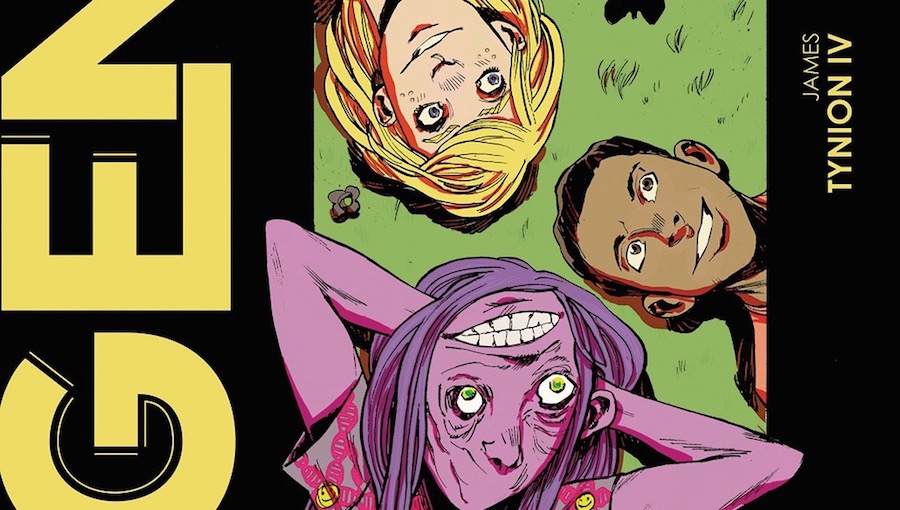The third and newest mini-series in a thematic anthology of Cronenberg/Black Mirror-style stories by creators James Tynion IV (writer) and Eryk Donovan (artist) isn’t the story of one character, or even a few. It is the story of a civilization. Eugenic is ambitious, telling individual stories at different points in time as we follow the trajectory of our civilization after genetic tampering, which was originally supposed to save us from a terrible virus. Instead, it changed us, or at least most of us. Those that were changed became hideous, purple creatures without sexual identity, race, or physical symmetry. How could they be hated when there was nothing to tell them apart. Like some deformed Picasso painting, physical beauty no longer matters. I said most changed, as the ones unaffected by the genetic alteration have become, in a way, biological slaves to the superior beings.
Making huge leaps in time means having to share plenty of exposition to catch the reader up to where this civilization is, which is fine, because we’re mostly seeing it through the eyes of a character. In this issue, it’s Bekk. Who Bekk is and what her place is in the story, I won’t reveal, only that in a scene that is not entirely pivotal to the plot between Bekk and her wheelchair-bound roommate, Kitty, what Tynion and Donovan are up to comes into clearer focus, and a sadness weighed on me. They struck a chord on multiple levels. The first being that there are currently people in our world who want to do away with what makes us different: one race, one sexual orientation, one ideology. This idea, of course, connects directly to the title of this three-parter, Eugenic. Something else struck me, however: the idea or feeling of being underrepresented in a culture that hasn’t fully embraced you for who you are. Under-representation happens all the time. People of different race and sexual orientation rarely have anyone to look up to in our American culture of film and TV. They have film fiction in which white actors wore yellow face to represent people of Asian descent, or straight men put on abnormally fey performances to portray gay men. My heart twisted around in reading this issue, and a wave of emotions hit me as I pieced together this paragraph.
This is what great science fiction should do. It should, even if for a moment, put you in the shoes of someone else. It should teach us more about humanity and more about ourselves, our differences, our similarities, our fears, and our loves. It should expand who we are. How Tynion and Donovan succeed is that they do all this; they get really freaking weird at times, and yet they stay grounded to real human emotions. I wish I could say more about this issue, but I don’t want to give anything away. This and their previous undertakings, Cognetic and Memetic, should all be sought out.

